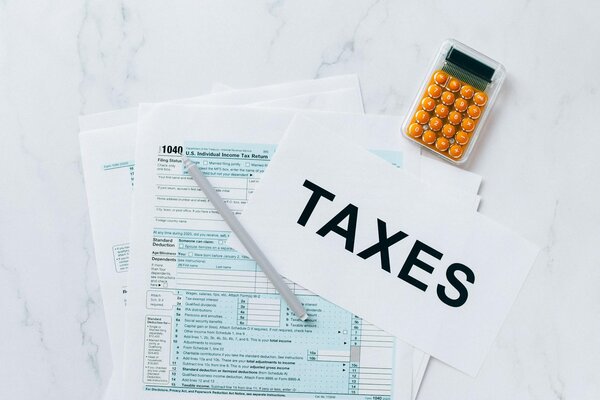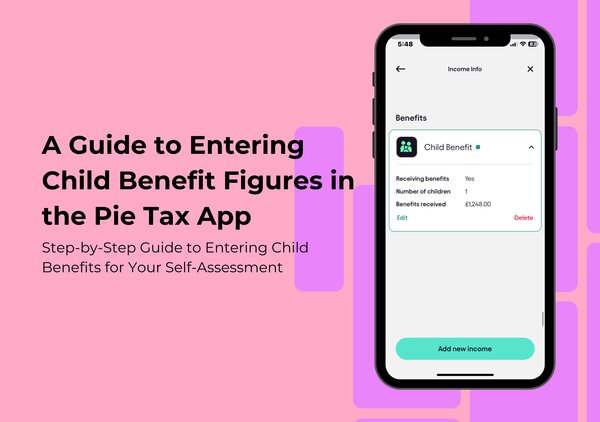Let’s Break This Down Together...
Ever wondered if you can claim your accountant’s bill on your tax return? Turns out, in many cases, you can and it could save you money.
This article walks through when and how accountant fees are tax-deductible, what records you need, and the key differences for sole traders, limited companies, and landlords.
By the end, you’ll know exactly what you can claim and how to do it right. Let’s dive in.
Good News: Your Accountant's Bill Might Be Tax Deductible!
Paying an accountant to handle your Self Assessment tax return can be money well spent. The cost of hiring an accountant is a key consideration, but it can often be outweighed by the potential tax savings and professional advice you receive. But here’s something even better – you might be able to claim those fees as a business expense and reduce your tax bill.
Accountant fees are considered a business cost for tax purposes, which means you can include them when calculating your allowable expenses. Claiming these fees can result in a tax deduction, further lowering your overall tax liability.
Navigating tax deductions is simple with the right approach. The UK’s first personal tax app, Pie tax, automatically identifies which expenses you can claim, including accountant fees. Or if you’re just here to get to grips with it all, let’s break it down!
Can I Really Claim My Accountant's Fees on My Tax Return?
Yes, in many cases you can claim accountant fees on your Self Assessment tax return. However, there are important rules you must follow to stay compliant. The basic principle is that if the accountancy service directly relates to your business and is for business use, it’s usually an allowable expense.
This includes preparing business accounts and completing the business sections of your tax return, as long as these services directly relate to your business activities. Not all accountant fees qualify, though. Personal tax advice or services unrelated to your business operations typically can’t be claimed.
HMRC applies a simple test: is the expense “wholly and exclusively” for business purposes? If your accountant’s invoice covers both business and personal matters, you can only claim the business portion.
It’s important to correctly classify accountant fees under the appropriate expense category on your tax return to ensure compliance with HMRC requirements.

How To Claim Accountant Fees As A Sole Trader
Claiming accountant fees as a self-employed person is straightforward. You’ll include them under “Professional fees” in the self-employment section of your tax return. These fees can be claimed as allowable expenses against your self employment income.
Always keep your accountant’s invoices safe. HMRC might ask to see them during a compliance check. Maintaining accurate financial records, including invoices, is essential for compliance and maximising allowable expenses.
The invoice should clearly show what services were provided. Ideally, it should separate business and personal services for clarity. You can only claim the business percentage of any fees. If your accountant charged £600 and 75% was for business work, you can claim £450. If you use the cash basis accounting method, you can only claim accountant fees as expenses in the tax year you actually pay them.
For sole traders, these expenses reduce your taxable profit. This saves you both income tax and National Insurance contributions.
Limited Company Directors: Different Rules Apply
If you run a limited company, the rules work differently. The company can claim 100% of accountancy costs related to company matters. When the company pays for accountancy fees, only those fees that are wholly and exclusively for business purposes are allowable. Accountancy fees related to corporation tax computations and returns are allowable for corporation tax purposes.
However, costs for your personal tax return are considered a director's personal cost and can’t be claimed through the company. Fees for preparing a director's personal tax return or director's tax return are not company expenses and, if paid by the company, should be reported as a benefit-in-kind and may have tax and national insurance implications.
I once made this mistake when I first started my company. I claimed my entire accountant’s bill through the business, only to have HMRC question it during a routine check.
Many accountants provide both company and personal services. Ask for separate invoices to make the distinction clear and avoid HMRC questions.

Capital Gains Tax and Accountant Fees
When it comes to capital gains tax, the rules around accountant fees are clear: if the fees are directly related to calculating your capital gains tax liability, they can be claimed as an allowable expense. This means that if you pay an accountant to work out your taxable profits from selling assets like property, shares, or investments, those accountant fees are tax deductible.
Allowable expenses in this area include fees for preparing CGT returns, advising on CGT reliefs, and ensuring your capital gains tax calculations are accurate. However, it’s important to make sure these fees relate specifically to the capital gains tax calculation and not to general personal tax advice, which is not deductible.
By claiming these directly related accountant fees, you can reduce your overall tax liability and ensure you’re only paying tax on your true taxable profits. Always keep detailed invoices and records to show that the expense was incurred wholly and exclusively for the purpose of calculating your capital gains tax.
Bad Debts and Accountant Fees
Bad debts are an unfortunate reality for many businesses these are amounts owed to you that are unlikely to ever be paid. The good news is that accountant fees incurred in the process of dealing with bad debts can be claimed as a tax deductible expense, provided they are directly related to the recovery or management of those debts.
This includes fees for services such as chasing up unpaid invoices, preparing bad debt provisions in your accounts, and advising on debt recovery strategies. As long as these fees are reasonable and directly related to the bad debt recovery process, they count as allowable expenses and can help reduce your taxable profits and overall tax liability.
Remember, only the portion of accountant fees that directly relates to bad debts can be claimed. Keep accurate records and detailed invoices to support your claim if HMRC reviews your tax return. This ensures you’re compliant while making the most of every deductible expense in your business.

Accountancy Fees and Tax Planning
Tax planning is a crucial part of running a tax-efficient business, and the good news is that many accountancy fees related to tax planning are tax deductible. If you pay for professional advice on tax-efficient strategies, preparation of your self assessment tax return, or representation in tax disputes, these accountancy fees can usually be claimed as allowable business expenses.
Accountants provide a range of services that help you minimise your tax liability, from advising on allowable expenses and capital allowances to preparing company accounts and financial statements. Whether you’re a sole trader, limited company, or company director, fees related to business tax returns, accounts preparation, and other professional services are generally deductible provided they relate directly to your business activities and not personal use.
To maximise your tax relief, make sure your accountant’s invoices clearly detail the services provided and separate any personal tax return fees from business-related costs. Accurate records and clear expense categories will help you claim the right amount and stay compliant with HMRC. Remember, not all expenses are allowable, so always check that the fees charged are exclusively incurred for business purposes and relate directly to your business operations.
The key takeaway: investing in professional accountancy services for tax planning not only supports your business’s financial health but can also reduce your tax bill just be sure to claim only the fees that are directly related to your business and keep thorough records for each tax year.
Common Mistakes When Claiming Accountant Fees
A frequent error is trying to claim for tax planning advice. HMRC doesn’t consider this a necessary business expense, so it’s generally not allowable.
Another mistake is claiming for accountancy services related to setting up a business. These are considered a capital expense rather than running expenses.
Some people try to claim their entire accountant’s bill without separating personal and business elements. This can trigger HMRC questions or even an investigation. Legal costs and other professional fees are also examples of expenses that need to be carefully classified to avoid incorrect claims.
Always check with your accountant about which parts of their fees you can legitimately claim. They should be able to structure their invoices to make this clear.

Digital Record-Keeping Makes Claiming Easier
With Making Tax Digital becoming mandatory for more businesses, keeping proper digital records of expenses is essential. This includes accountant fees.
Take photos of invoices and store them digitally. HM Revenue and Customs (HMRC) may request to see these records to verify your claims, so having them organized is important.
Many accounting software packages let you categorise professional fees correctly. This ensures they flow through to the right part of your tax return.
Proper record-keeping isn’t just about compliance. It helps ensure you claim everything you’re entitled to without overstepping. Keeping your records organized by tax years is crucial for compliance and making accurate claims.
Final Thoughts
Claiming accountant fees on your Self Assessment is perfectly legitimate when they relate to your business. Just be sure to separate personal and business costs.
Keep good records and only claim what you’re entitled to. This approach keeps you compliant while maximising your allowable deductions. Proper expense claims also improve tax efficiency, helping you make the most of available tax benefits.
Accurate claims not only ensure compliance but also help manage and reduce your tax liabilities over time.
The rules differ slightly depending on whether you’re a sole trader or limited company director. These rules are especially important for small business owners, who often face more complex financial records and tax requirements. When in doubt, ask your accountant for clarity.
Pie tax: Simplifying Accountant Fee Tax Claims
Knowing which accountant fees you can claim shouldn’t require an accounting degree. Pie tax automatically identifies which professional fees qualify as tax-deductible expenses.
Our smart system helps you separate business and personal elements of your accountant’s bill. The app also helps you identify expenses for business use, including travel expenses and household expenses for those working from home.
It can assist landlords and those with property income or a rental business in tracking deductible expenses such as mortgage interest. Additionally, the app supports small business owners in tracking expenses related to attracting new clients. This ensures you only claim what HMRC allows, reducing the risk of unwanted tax investigations.
We’ll remind you to keep digital copies of invoices and store them securely within the app. They’ll always be available if HMRC has questions about your claims.
Pie tax integrates directly with HMRC, meaning your properly categorised accountant fees flow seamlessly into your Self Assessment. This saves time and reduces the chance of costly errors.
Curious to see how much easier tax could be? Take a look at Pie tax and discover a smarter way to manage your accountant fee claims.

Quick and Easy Guide to Add Expenses
Follow these steps to add expenses in the Pie app
Swipe right on any eligible transaction to add it as an expense you want to declare on your tax return, moving it to the ‘expense’ tab.Step 1

Use the ‘Quick Add’ feature to manually enter any additional expenses not found in your bank transactions for your self-assessment.Step 2












